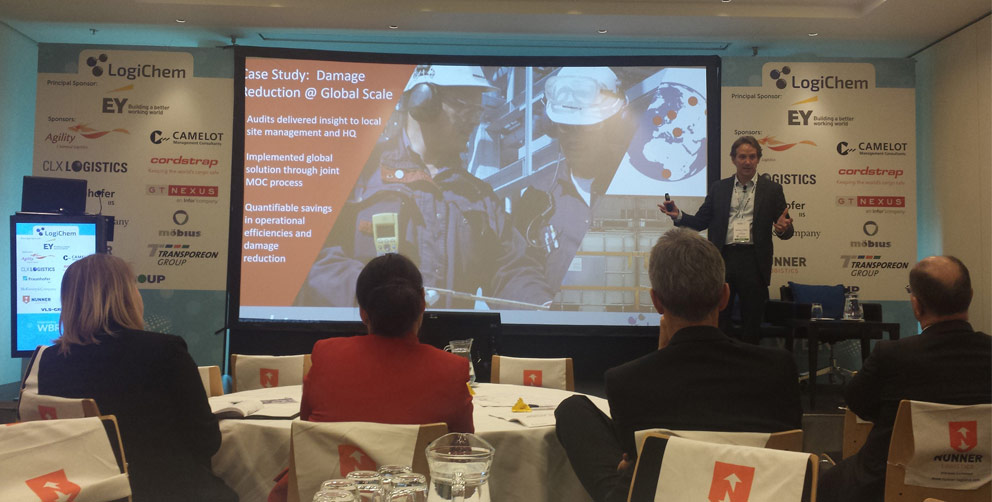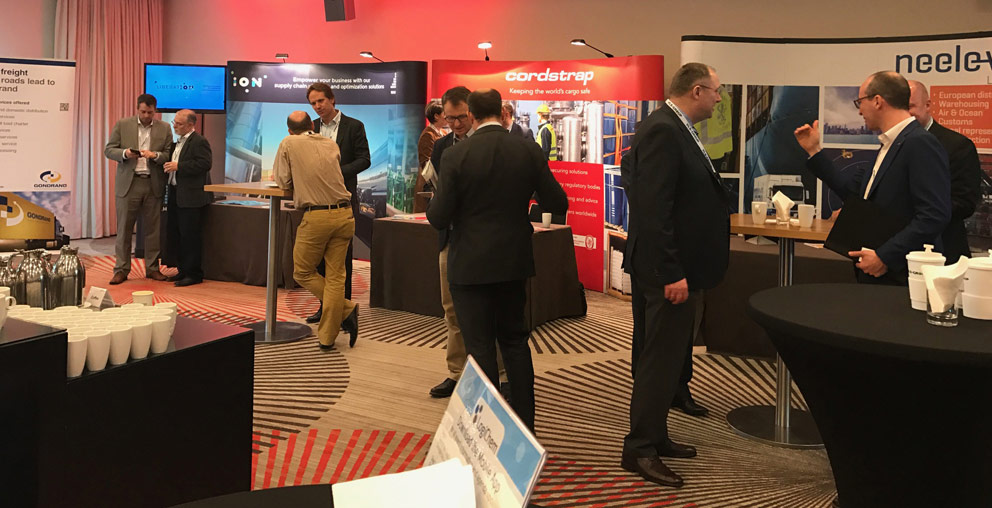
Safety is a key factor in global chemical manufacturing – and as a result is highly regulated. However, there is a striking mismatch in regulation of the transport chain for these products. For example, only 2% of all outgoing containers worldwide are inspected before shipment – and a recent study by TT Club came to the conclusion that poorly packed cargo accounts for 65% of all damage incidents. On a global scale, cargo losses have an annual estimated financial impact of $50 billion.

Rules and regulations play a crucial role in lowering the number of incidents in the supply chain. Every year, 700 million tons of cargo are transported, 90% by sea. IMO, ILO and UNECE introduced the CTU-Code as a guide to how shippers should secure their cargo for transportation. After growing adoption of the guideline in recent years in ports around the world, on January 1st 2018 the CTU-Code will become law for the shipment of dangerous goods and as of that date, will be included in the legally binding IMDG-Code.
The AAR (American Association of Railroads) plays a regulatory role beyond US shores. If cargo uses US rail anywhere on its journey, it needs to comply with AAR regulations in order to prevent rejections, delays and extra costs.
Daily conversations with supply chain and logistics managers demonstrate four key issues to us at Cordstrap:

In order to resolve daily conflicts, cargo securing needs to move from a loading dock conversation to become a business topic with four key pillars:
Treating cargo securing in this way will result in reduced total cost of ownership (TCO). Cost and risks of damages, loading inefficiencies, injuries, spills and accidents can be controlled and reduced.
As an example, a large chemical manufacturing site in North America asked Cordstrap to look at their current cargo securing process. They had identified a potential safety issue – differences in temperature over time resulted in moisture inside containers, meaning that adhesives were not sticking properly. After an audit, we identified the current cargo securing process as a bottleneck in the supply chain operation. The long time it took to secure the 4000 containers the site shipped per year was holding up logistics and transportation on a daily basis. Following the audit, we recommended new cargo securing solutions. These resulted in faster loading times, higher throughput and a lower total cost of ownership.
At Cordstrap, we take cargo securing seriously and are constantly looking for ways to innovate with new products and service concepts. We work in partnership with some of the biggest and most prestigious brands in the chemical industry to keep the world’s cargo safe.
For expert advice on cargo securing solutions contact us now
Contact nowCordstrap have specialists in over 50 global locations
Providing physical insurance to the world’s major industries
Delivering cargo protection solutions